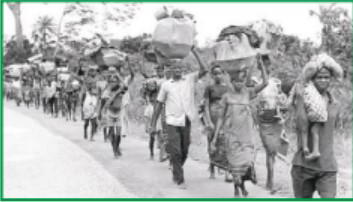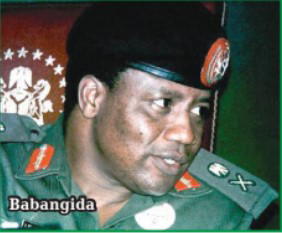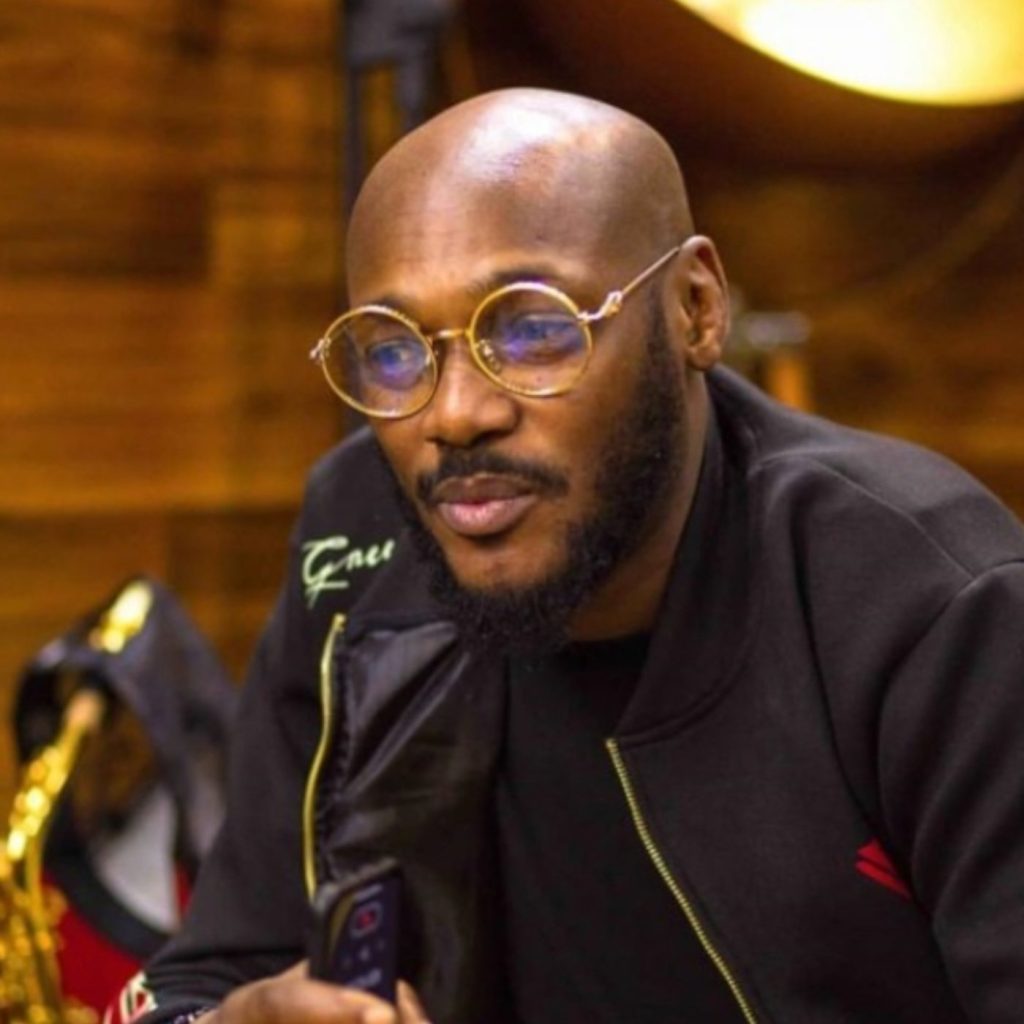Nigeria at 65: A chronicle of hope, and possibility, by Stephanie Shaakaa

*Capturing every decade from 1960 to the 2020s and what we must do in the next decade
From coups to culture, bread prices to Burna Boy, this is Nigeria’s Independence story like you’ve never read it before. A journey through six decades of triumphs and trials, victories and heartbreaks, all stitched together in memory and meaning. This isn’t just history it’s our collective heartbeat.

On October 1, 1960, a new giant was born. Sixty five years later, that giant still crawls. The Union Jack came down and the Green White Green rose into the skies, while the anthem of freedom played to a nation brimming with hope. The air was electric, the future was wide open, and a people who had endured colonial subjugation believed that their time had come.
But history would prove that independence was only the first step. What followed was a story of promise and heartbreak, of resilience and despair, of triumphs that made us proud and failures that left us broken. To understand Nigeria at 65 is to walk decade by decade through a national odyssey that has tested the endurance of its people and the very idea of the country itself.
The 1960s: Innocence and Civil War
The 1960s began with innocence. Nigeria’s founding fathers Nnamdi Azikiwe, Ahmadu Bello, Obafemi Awolowo and Tafawa Balewa carried the dreams of millions. They promised unity in diversity, economic prosperity and a democracy that would thrive. But the fragile federation soon buckled under the weight of mistrust, ethnic rivalry and corruption.
By 1966, coups toppled the first republic, shattering the illusion of stability. Young military officers replaced ballot boxes with bullets. By 1967, Nigeria descended into the Biafran War, a brutal conflict that killed over a million people and left scars that endure to this day. The 1960s ended not with the promise of independence but with the memory of starvation, blood and wasted potential.
Presidencies of the decade: Tafawa Balewa led at independence but fell to the first coup. Nnamdi Azikiwe was a ceremonial president without real power. Major General Johnson Aguiyi Ironsi tried to unify the country but was killed in a counter coup. Yakubu Gowon emerged, young and untested, leading Nigeria through war with a pledge to keep the nation one.
The 1970s: Oil Boom and Squandered Wealth
The 1970s arrived with oil money flowing like a river. Nigeria suddenly became rich beyond imagination. The world looked to Lagos as black gold transformed the economy. Motorways, universities and stadiums sprang up, and Nigerians abroad were treated with respect. The naira stood strong, and the country was called the giant of Africa with pride.
Yet beneath the boom lay waste. Corruption flourished as billions disappeared into private pockets. The military that had promised discipline became intoxicated by oil. Coups and counter coups defined the era. Gowon was overthrown for overstaying his welcome. Murtala Mohammed brought energy and reform but was assassinated after only 200 days in power. His successor Olusegun Obasanjo handed power to civilians in 1979, becoming the first to voluntarily exit office.
But the 1970s left behind a sobering lesson, wealth without accountability is a curse. Nigeria earned billions but built little that lasted.
The 1980s: Austerity, Authoritarianism and Broken Promises

The 1980s came with harsh winds of austerity. Shehu Shagari’s civilian government was quickly overwhelmed by corruption and economic decline. Nigerians watched as the oil price crash exposed the fragility of the boom years. By 1983, another coup returned the military.
Enter Muhammadu Buhari with his War Against Indiscipline. He ruled with iron fists, jailing politicians and silencing dissent. His regime preached discipline but delivered repression. He was soon toppled by Ibrahim Babangida, the military president who mastered the art of deception.
The Babangida years defined the decade with Structural Adjustment Programs dictated by the IMF and World Bank. Subsidies vanished, the naira collapsed, and poverty spread like wildfire. Babangida promised democracy but annulled the June 12 election in 1993, betraying the will of the people.
The 1980s taught Nigeria that the military could remove corrupt civilians but could not build a nation.
The 1990s: Repression, Resistance and the Battle for Democracy
The 1990s were Nigeria’s darkest chapter. General Sani Abacha ruled with fear, crushing opposition, jailing activists and looting billions into foreign accounts. The world isolated Nigeria as a pariah state. The hanging of Ken Saro Wiwa and the Ogoni Nine in 1995 shocked the conscience of the world.
Yet the decade also witnessed resilience. Civil society, pro democracy groups, and the press risked everything to fight dictatorship. Students marched. Workers struck. Activists were jailed, exiled or killed, but the resistance never died.
When Abacha suddenly died in 1998, Nigeria exhaled. Abdulsalami Abubakar ushered in a brief transition that returned power to civilians in 1999. The 1990s ended in exhaustion but also with the fragile rebirth of democracy.
The 2000s: Reform, Oil Dreams and Unfinished Change
The return of democracy under Olusegun Obasanjo in 1999 was supposed to be a new dawn. The 2000s carried immense hope. Obasanjo stabilized the economy, attracted foreign investment, and secured debt relief. Nigerians gained access to GSM phones that transformed communication. Nollywood exploded into a global cultural force. There was growth, but there was also unfinished change.
Obasanjo’s attempt at a third term stained his legacy. Umaru Musa Yar’Adua succeeded him in 2007, bringing humility and reformist zeal. But illness cut his presidency short, leaving his deputy Goodluck Jonathan to complete his term. The Niger Delta militancy worsened, reminding the nation that oil wealth without justice breeds violence.
The 2000s were an era of fragile progress. Democracy returned but remained shallow. Institutions were rebuilt but corruption endured. Nigerians felt hopeful yet skeptical.
I remember the year 2000 like one remembers a song from childhood still vivid, still echoing.The year Y2K was even rumoured to be the year the world will come to an end. There was something about that time.The air carried hope like the harmattan dust, drifting into every crack of our national consciousness. The shadow of military rule was finally lifting, and in its place stood a fledgling democracy, awkward but ambitious, led by President Olusegun Obasanjo. We weren’t just starting a new century we were starting over.
In those days, the world was on edge over the Y2K bug, and in Nigeria, we quietly feared that our digital infrastructure barely functional to begin with might melt under the weight of a new millennium. But Nigeria, ever stubborn, pressed on. The resilience of our people has always bordered on the mythological.
Our dreams were big. Universities were swelling in numbers. Banks were flourishing and opening branches everywhere including your doorstep.

With oil prices rising, our economy boomed. The middle class grew fat with confidence, their fingers stained with new ink, stock certificates, property deeds, the keys to new banking halls and glittering telecom offices. It was the GSM era, the dawn of a connected Nigeria. MTN, Econet (which shape shifted into Vmobile, Celtel, Zain, and eventually Airtel), Glo Mobile, Etisalat, and even Turaya burst onto the scene. Suddenly, phones rang across markets, inside molues, and even from the narrow balconies of face-me-I-face-you apartments. You weren’t cool if you didn’t own a Nokia 3310, or a Motorola flip, or a Sagem with a ringtone that played 2Baba’s “African Queen.”
Those who lived through the 2000s in Nigeria remember it not just through policy shifts or economic reforms, but through the soundtrack of their youth and the pulse of their weekend football matches. It was the era when Sisqó’s “Thong Song,” Westlife’s “My Love,” and the Backstreet Boys’ “I Want It That Way” ruled our radios and hearts. Nelly and Kelly Rowland’s “Dilemma” played endlessly, and Usher’s “Yeah!” turned every university dorm into a dance floor. Globally, music was a balm, but it was here at home that something magical began to happen Nigerian music found its voice.
From the moment 2Face Idibia sang “African Queen,” a cultural shift began. Style-Plus melted hearts with “Olufunmi,” Tony Tetuila gave us the anthemic “My Car,” and Eedris Abdulkareem’s “Jaga Jaga” with Mr Lecturer spoke uncomfortable truths to power. P-Square’s “Bizzy Body” and D’banj’s “Why Me” didn’t just top charts they became national moods. Kennis Music, Mo’Hits, Storm Records, and Trybe Records were more than labels,they were movements. These songs, played on Soundcity and Channel O, didn’t just entertain, they helped us believe that Nigeria could compete on a global cultural stage.
Meanwhile, football stitched us together. Whether it was the agony of losing to Cameroon on penalties in the 2000 AFCON final or the anticipation of the 2002 World Cup, when Julius Aghahowa’s backflips became legend, the game united us like little else. In dusty fields, boys wore faded Arsenal, Manchester United, and Barcelona jerseys, arguing about Henry, Ronaldinho, Okocha, and Kanu. At viewing centres, cheers erupted when Mikel Obi dazzled in the 2005 U-20 World Cup or when Obafemi Martins scored one of his rocket goals. Every street corner had its pundit, every child had a dream.
And then there was the everyday life that now feels like folklore. Eating meat pies at Mr. Bigg’s, watching Super Story and Papa Ajasco on Thursday nights, texting on a Nokia 3310 with custom ringtones and flashing friends with “please call me” .The arrival of 2go and Yahoo Messenger marked our first taste of digital connection or the all night extra cool free calls.WAEC scratch cards, Gulder Ultimate Search, Ovation and Hints magazines on the salon table all of it was Nigeria, in full color and full feeling.
Nigerian urban music shed its old skin and found a new rhythm. Kennis Music became the launchpad for a generation of stars. Storm Records followed closely behind, and the rivalry between them kept fans breathless. Our voices, once considered peripheral on the global stage, were now booming through speakers in Johannesburg, London, and Atlanta. We were no longer imitating; we were exporting.
Nollywood, that scrappy film industry born out of raw passion and VHS tapes, matured into a cultural phenomenon. “Living in Bondage” may have laid the foundation in the ’90s, but by the 2000s, Nollywood had become a continent-wide obsession. Our stories laced with melodrama, moral conflict, and magic were being told, and more importantly, they were being heard.
Even our bread told a story. Once just 10 naira in the 1990s, by the early 2000s, it cost five times that. A quiet marker of change. Our cities expanded, and with them came glittering malls, gated estates, and a new swagger in the step of the Nigerian middle class. Magazines like Encomium and Ovation captured it all the weddings, the wealth, the whispers.
And behind the scenes, technocrats were trying to lay a better foundation. Charles Soludo, then Governor of the Central Bank, orchestrated banking consolidation that birthed financial titans.
Education saw a renaissance too, as new private universities sprouted across the nation, promising a better future. CEOs like Tony Elumelu, Jim Ovia,Albert Wigwe, Cecilia Ibru, and Aliko Dangote were more than captains of industry they were symbols of what was possible.
But as with many Nigerian stories, hope is often followed by hardship.
The 2010s came with the weight of unfulfilled promises. The euphoria faded. Reality, brutal and unrelenting, replaced it.
Boko Haram rose from the ashes of neglect and festered into a monster. The 2014 abduction of the Chibok girls broke the nation’s heart and the world’s too. It wasn’t just a failure of security, it was a betrayal of trust. Parents sent their daughters to school with dreams, only to be met with nightmares. And no amount of hashtags could bandage that kind of wound.
Our oil-dependent economy took a hit when global prices crashed. The cracks we’d papered over began to split wide open. In 2015, the people voted for change. President Muhammadu Buhari’s victory was historic, a democratic handover from one ruling party to another. It came with renewed hope perhaps naïve but hope nonetheless.
But by 2016, we were in a recession. The dream of diversification became little more than campaign poetry. Power supply remained unreliable, despite privatization. The education sector suffered from unending strikes. The media, once robust, now struggled under censorship and shrinking advertising budgets. Social media democratized speech but also became a double-edged sword, enabling both truth and toxicity.
Some banks collapsed. The confidence that once graced the faces of everyday Nigerians began to slip. And yet, amidst this slow unraveling, a generation of young Nigerians found new ways to resist despair with tech, with comedy, with activism. The pulse of resilience beat on, stubbornly.
That’s what these decades have been,a clash of contradiction. Triumph and tragedy. Promise and peril. A dance between light and shadow.
Now, we stand at the threshold of the 2020s. And while the scars of the last two decades are deep, they need not define us. Much like the late ’90s prepared us for democratic rebirth, perhaps now is the time for a deeper reckoning. One that demands more than slogans or recycled manifestos. We need leaders who are not just managers of power but stewards of purpose. We need citizens who choose conscience over convenience.
The 2010s tested Nigeria’s resilience more than any decade since the civil war. Goodluck Jonathan presided over both triumphs and tragedies. The economy briefly became Africa’s largest, yet poverty deepened. Boko Haram terrorized the northeast, abducting schoolgirls and bombing cities. The Chibok girls became a global symbol of state failure.
In 2015, Muhammadu Buhari returned, this time through the ballot, riding on promises of change. Nigerians believed he would crush corruption and insecurity. But hope soon gave way to frustration. Recession, unemployment and deepening insecurity defined his eight years. Herdsmen attacks spread fear across rural Nigeria, while kidnappings and banditry multiplied.
By the end of the decade, Nigerians were weary. They had endured but saw little evidence that leaders could match their sacrifices.
The 2020s: Protest, Technology and a Nation at the Crossroads
The 2020s began with turmoil. The #EndSARS protests of 2020 revealed the courage of a new generation. Nigerian youth mobilized against police brutality, demanding dignity and reform. The state responded with bullets at Lekki Toll Gate, a moment that seared itself into the memory of a nation.
The scars of the last two decades are deep, but they need not define us.
The call for leaders as stewards of purpose, not just managers of power.
The wake-up call: The Giant of Africa is tired of sleeping. And maybe just maybe this is the decade it finally wakes.
Yet the decade also brought glimpses of possibility. Nigerian tech companies like Flutterwave and Paystack gained global recognition. Afrobeats conquered the world. But insecurity remained a bleeding wound, and economic hardship deepened as inflation soared and the naira collapsed.
In 2023, Bola Tinubu took office with bold promises of reform. He inherited crushing debt, a broken subsidy regime and widespread distrust. Nigerians watch closely, unsure whether this will be the rebirth they long for or another repetition of disappointment.
The 2020s are still being written. They will decide if Nigeria is remembered as a storm that drowned its people or a turning point that redeemed its destiny.
The Next Decade
As Nigeria turns 65, the next ten years will determine whether we remain a country forever circling the same problems or finally break free into the promise our flag carried in 1960. The challenges are already clear. We must stabilize the economy beyond oil, restore faith in governance, secure lives and property, and give the youth a reason to believe Nigeria can work for them.
The future will not be written by chance but by choices. We must choose leaders who value service over power, institutions over individuals, and truth over propaganda. We must invest in education and agriculture as the bedrock of survival, and in technology as the bridge to relevance in a new world. We must heal our divisions not by pretending they do not exist but by building justice that makes unity worthwhile.
Between 2025 and 2035, Nigeria either becomes a giant that finally stands or a shadow that forever stumbles. History will not wait for us. The world is moving. Our next decade must be the one where we catch up.
Nigeria is 65 and the excuses have expired. We cannot keep blaming colonialism or bad luck or geography. The truth is simple,nations rise when their people decide enough is enough. If our leaders will not change, then citizens must demand it with their votes, their voices and their vision. Sixty five years of crawling is long enough. The time has come for Nigeria to stand,
not as a shadow of what could have been, but as a nation that finally chose to walk tall.
The post Nigeria at 65: A chronicle of hope, and possibility, by Stephanie Shaakaa appeared first on Vanguard News.







